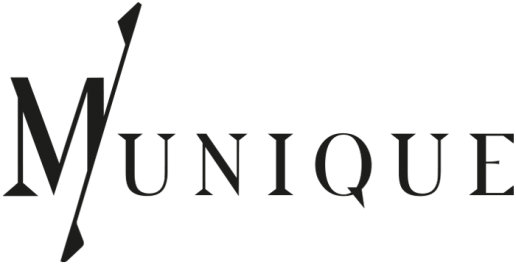We first met Sarmite Polakova in 2018 as the Latvian designer showcased PineSkins at Munich Fabric Start’s Keyhouse. Presented as part of the sustainable innovations forum, her project featured a collection of pine bark products with unusual aesthetic as a way to break down existing stereotypes of traditional bark products. Read more on her PineSkins project here. More recently, Sarmite continues to investigates unconventional approaches to developing textile materials and product solutions. Her body of work mainly focusses on transforming unassuming, natural materials to reveal a new purpose and with her latest work undergone at Studio Sarmite as she seeks to fill the gap in the textile recycling systems for high-value recycled material solutions.
Read below the interview with Sarmite Polakova as well as watch the latest episode of our ‘Key Conversations’ video series which features Sustainable Innovations curator, Simon Angel in talks with Sarmite on her latest projects, watch the full video here.
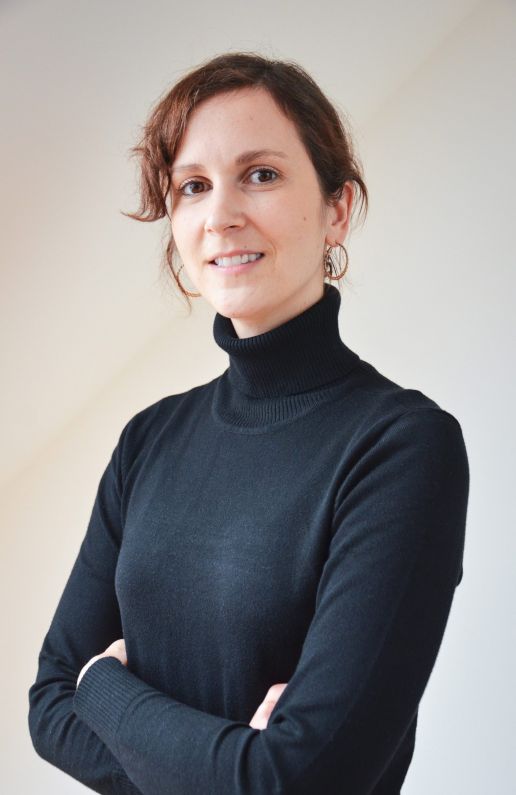
Can you tell us how your project PineSkins has grown since you exhibited at Keyhouse in 2018?
I have such good memories of Keyhouse 2018! I received a lot of interest, inquiries as well as good feedback on PineSkins project. It really helped me to grow my network, start collaborations as well as understand the potential for a material like PineSkins in the future of this industry. My work in this area also led me to develop further investigations in the use of byproducts from the timber industry. Such as the glass-like composite call Pine Resin, which I developed into a collection of vases, so to let the designs become the main carrier of the narrative to push the boundaries on what we think is possible when using existing natural resources.
Tell us about your consultation process, how do your projects develop together with your clients?
Typically, it can involve a mix of processes and can involve a consultation to find the right methods, optimising processes, as well as sourcing sustainable materials, but it can also be a hands-on collaboration to create new materials or implement my processes. Especially over the past few years, I have been growing my knowledge and experience with sustainable materials, production methods and business practices. I believe in sharing our knowledge and therefore am looking for ways to help other companies implement circular economy models and practices. This is the next phase of my development as a material developer and am already I’m involved in several collaborations. In this way I excited to share my knowledge to the benefit of others and to see how this develops further in future!
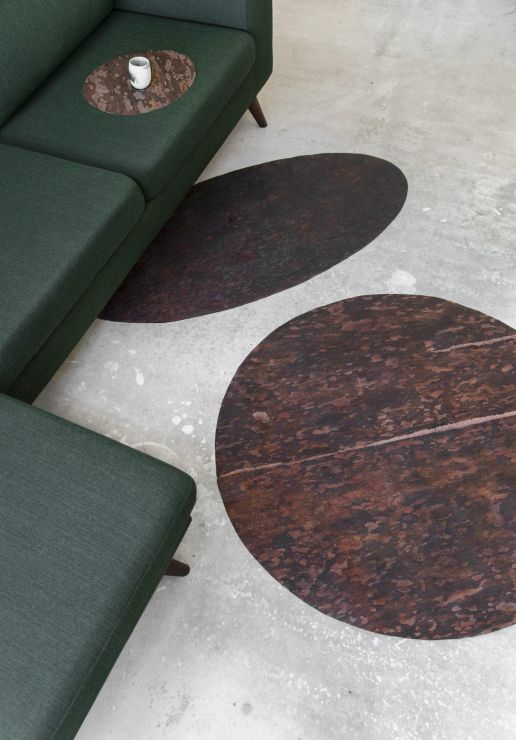
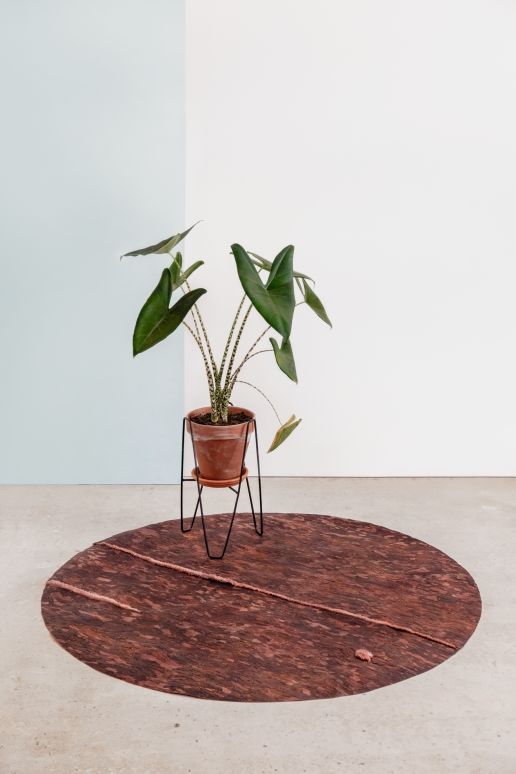
Tell us about a project you are currently working on at Studio Sarmite?
In 2020 I joined forces with designer and friend, Mara Maizele as together we wanted to see whether we can do something about the growing amount of textile waste, piling up in our landfills. While investigating the current textile recycling system, we realised that there is a lack of high-value materials made of recycled textiles. Unless they go through a complete re-spinning process, post-consumer textile fibres they are considered a low-quality functional material typically suited for upholstery, filling and insulation. We wanted to challenge this status quo and instead focus on the qualities of the material. For example, its insulation capabilities could be an amazing characteristic for garments and accessories.
Through research and experimentation, we combined techniques from traditional textile making with use of natural binders and slowly we arrived at the marble-pattern bio-textile that we call “Pre-Loved Wool”. The resulting material has a smooth, leather-like feeling and can be created in various thicknesses, color and pattern combinations. It is water repentant, can be sewed, glued, folded with exciting potential as an alternative to leather within clothing and accessories.
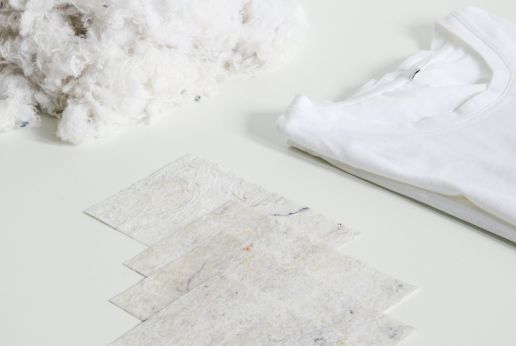
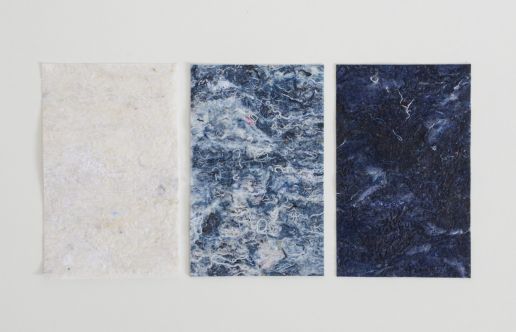
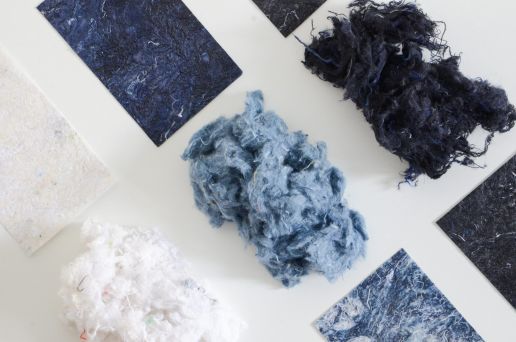
Can you share any particular challenges you faced while developing this new project?
During the process we learned that the current post-consumer textile fibre industry is quite closed, so to say. It caters mainly for extremely large businesses selling huge amounts of fibres, and often only in a few separate fibres per colour. This involved a lot of research and networking to find companies who would be willing to support our project through smaller quantities – a huge shout-out goes to Inretex in Spain, Altex in Germany and Eco Baltia in Latvia!
It also became clear, that the current textile recycling system might be doing more harm than good with their current recycling practices. Cheap clothing often consists of mixed fibers – cotton, polyester, elastane mixed together in a single thread. To separate such fibres is already difficult and can only be done chemically. Whereas, textile recycling centers can often only downcycle old garments down to a fibre and as a result they create an even bigger mix of fibres, at which point there is no point of return in terms of fiber separation. This is how we realised, that we should simply accept the fibre for what it is – a new type of a textile that is the sum of all individual fibers. It is no longer about the exclusivity of fibers but rather it is about inclusivity. Together they form a new identity with new aesthetics and nuances.
Who is your dream company to collaborate with and why?
A company who is heavily involved in their own material and product production and one that puts sustainability at the forefront. Many come to mind, but definitely established brands like Adidas, Ikea and even fashion brands like Max Mara or Balenciaga. I’d love to collaborate with a fashion brand who wants to turn their textile waste into a new Pre-Loved product. Already I can imagine the unique patterns and colour combinations. Imagine a Pre-Loved-Chanel, how amazing would that be?
Our thanks to Sarmite for her insights and joining us in conversation as part of the Key Conversation series with Sustainable Innovations curator, Simon Angel. If you’re interested in the projects mentioned or processes mentioned here by Sarmite Polakova feel free to contact her here: sarmite.polakova@gmail.com
Let’s keep the conversation going … did this project spark an idea or do you have any questions? We’d love to hear from you, send us an email to info@munichfabricstart.com
